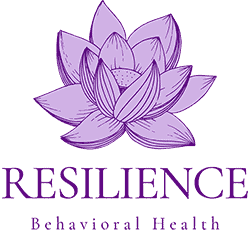Depression and Addiction: Understanding the Interplay and Finding Hope
Introduction
Hey there, it’s Dr. Emily here, and today we’re diving deep into the fascinating connection between depression and addiction. As a seasoned specialist in treating these two hand-in-hand, I’ve seen how they weave together in unexpected ways. But don’t worry, we’re in this together, and I’ll shine a light on how we can find hope amidst this challenging journey!
Imagine standing at a crossroads, torn between two winding paths. That’s depression and addiction for you! Depression feels like a constant cloud hovering above, while addiction offers fleeting relief, only to drag you back into the abyss. But fear not, I’m here to guide you through this maze and help you find your way forward.
The Link between Depression and Addiction
Let’s unravel how these two seemingly different worlds collide. When depression strikes, it’s like wading through murky waters, searching for a lifeboat. For some, substances become that lifeboat, providing a brief escape from the storm. But here’s the kicker – addiction only prolongs the struggle, leaving you even more trapped in despair.
I once had a patient, Jake, who battled depression and sought solace in alcohol. At first, it seemed to ease his pain, but soon enough, addiction consumed him, making his depression spiral out of control. It was like trying to hold onto a life raft with a slow leak.
The Role of Neurotransmitters in Depression and Addiction
Recognizing the Signs of Co-occurring Depression and Addiction
Imagine solving two puzzles at once – that’s what diagnosing depression and addiction can feel like. Sometimes, the symptoms intertwine, making it tricky to pinpoint the root cause of your struggles.
As a doctor, I rely on my intuition and attentive listening. One of my patients, Sarah, sought help for drug addiction, but as we spoke, it became evident that depression was also at play. Together, we pieced the puzzle together and began the journey to healing.
Treating Depression and Addiction Together
Now, let’s talk about the good stuff – treatment! It’s like having two hands working in harmony, one for depression and the other for addiction. We call it an integrated treatment, a dynamic duo tackling these challenges side by side.
For depression, therapies like cognitive-behavioral therapy (CBT) act as your trusty compass, guiding you towards emotional stability. And when combined with addiction treatment, it’s like the perfect recipe for recovery.
Medication Management for Co-occurring Depression and Addiction
Okay, let’s address the elephant in the room – medication. Some folks might hesitate, worried it will dull their emotions. But fear not, it’s more like a gentle breeze that helps steady the stormy emotions of depression.
Mark, another patient of mine, was concerned about taking depression medication while battling addiction. After discussing his worries and weighing the options, he decided to give it a shot. Gradually, he found that the right medication helped him experience fewer emotional extremes, making his journey to recovery smoother.
Dual Diagnosis Rehab Programs
Picture having two expert coaches guiding you to a healthier life. That’s precisely what a dual diagnosis rehab program does! These specialized programs are like superheroes, providing comprehensive care for both depression and addiction.
In these programs, you’ll learn valuable skills to cope with emotional challenges and manage triggers that might lead to addiction relapse. It’s like having an army of support by your side.
Coping Mechanisms for Long-Term Management
Remember, recovery is a marathon, not a sprint. Along the way, you’ll need some tools to navigate life’s challenges. Coping mechanisms act as those trusty tools, helping you stay on course and avoid detours.
Patients need to learn to identify warning signs, develop healthy coping strategies, and maintain a balanced lifestyle. It’s like building a toolkit to handle life’s ups and downs without falling back into old patterns.
Breaking the Stigma and Seeking Help
Before we wrap up, let’s tackle the big, bad stigma surrounding depression and addiction. It’s like they’re the odd ones out at a party, but seeking help is no sign of weakness. In fact, it’s a brave step towards finding your way out of the dark.
If you or someone you know is struggling, don’t hesitate to reach out for support. Together, we can break down barriers and foster a judgment-free environment where healing can thrive.
Supporting Families and Loved Ones
In this journey, your loved ones are like your cheerleaders, and you need them more than ever. Families play a crucial role in understanding what you’re going through and providing unwavering support.
Like learning a new dance, they might need some guidance to understand depression and addiction better. So let’s extend a hand and help them learn the steps.
The Path to Recovery and Beyond
As we approach the end of this winding road, remember that recovery is a journey, not a destination. Celebrate little victories along the way, like those sweet moments of clarity and growth.
With ongoing support, self-care, and the right tools, you can embrace a brighter future. So take a deep breath, put on your dancing shoes, and let’s keep moving forward, one step at a time.
Conclusion
We’ve unraveled the intricate relationship between depression and addiction. Remember, you’re not alone on this journey. If you’re feeling lost or overwhelmed, don’t hesitate to seek professional help. Together, we can navigate the twists and turns and find hope on the other side. There’s a world of possibilities waiting for you, so let’s take that first step together!


